



RSPCA Guides Consumers on Rearing Systems
UK - Do you know your free range from your outdoor? Or indeed your indoor from your barn? RSPCA advises consumers about barn, indoor-reared, outdoor-bred, outdoor-reared and free-range rearing of poultry and pigs.Whether an animal is born or reared indoors or outdoors, the key to good animal welfare is good farming, which includes good stockmanship and an environment that meets the animals' needs, says the Royal Society for the Prevention of Cruelty to Animals (RSPCA). However, it is important that products – even if farm-assured – make it clear whether an animal was reared indoors or outdoors. That way we can all make an informed choice. But, what do terms such as 'outdoor bred' and 'free range' really mean? To help you out we have provided a quick run down below.
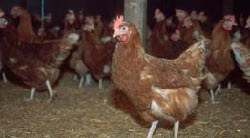
below: Indoor-reared poultry
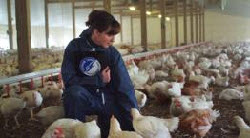
Barn
'Barn' is the legal term used for eggs which come from indoor-reared hens, importantly, not in cages. Freedom Food barn-reared hens must have – amongst other things – perching, nest boxes, space to move around, and good quality litter for scratching around, foraging and dust-bathing.
Indoor-reared
Pigs, chickens, turkeys and ducks can all be indoor-reared. The RSPCA's welfare standards ensure that these animals have an environment that meets their specific needs, in terms of space, light, enrichment etc.
Outdoor bred
Outdoor bred describes pigs that are born outside where they remain until they are weaned at about four to five weeks of age, then indoor-reared.
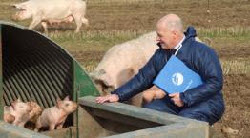
below: Outdoor-reared pigs
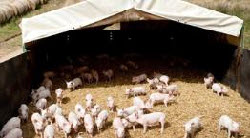
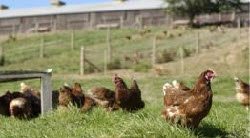
Outdoor reared
This describes pigs that are born and reared outside for at least half their life, then indoor-reared.
Free range
The definition of free-range varies by animal. For example, free-range pigs are born outside where they remain for their entire life, with plenty of space to roam about.
Under law, free-range egg-laying hens must be allowed out during the day once they start laying eggs, and in any case by 21 weeks of age under the 'Freedom Food' scheme.
Free-range turkeys must be allowed out for at least half their life. As well as these minimum periods, there are also numerous other criteria that must be met before any product can be labelled free range.
Under Freedom Food, free-range animals must be provided with appropriate shade and shelter, which protects them from the sun, wind and rain, as well as predators; and the land must be well managed to help maintain the quality of the soil and vegetation.








